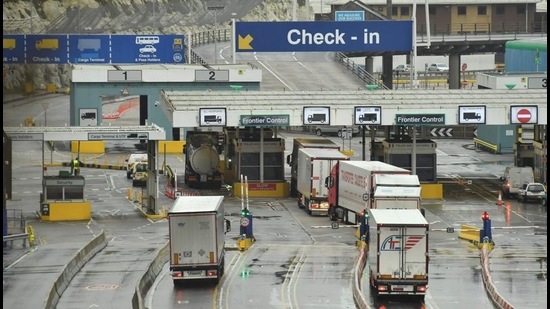Post-Brexit Britain better-off as a global broker: Report
“India is always on the list of countries with which a new UK government commits to engage. But it should be obvious by now that the idea of a deeper relationship with India always promises more than it can deliver,” said the report from Chatham House.
Britain can remain internationally influential if it serves as a broker to global challenges such as climate change, equitable economic growth and health resilience, rather than as a miniature ‘great power’, an influential think-tank said in a major report on Monday.

Chatham House, also known as the Royal Institute of International Affairs, said in the report titled ‘Global Britain, Global Broker’ that the UK needs to accept that while giving India attention, gaining direct national benefit from the relationship, whether economically or diplomatically, will be difficult.
“India is always on the list of countries with which a new UK government commits to engage. But it should be obvious by now that the idea of a deeper relationship with India always promises more than it can deliver. The legacy of British colonial rule consistently curdles the relationship”, the paper by Chatham House director Robin Niblett says.
The paper lays out six international goals for the UK that offer the best points of connection between its interests, resources and credibility: protecting liberal democracy; promoting international peace and security; tackling climate change; enabling greater global health resilience; championing global tax transparency and equitable economic growth; and defending cyberspace.
It notes that part of the logic of Brexit was that a more sovereign ‘Global Britain’ could pursue its commercial interests more successfully and enhance its voice internationally, but today the UK must contend with greater protectionism, a more introspective US, no ‘golden era’ in relations with China, and gridlock in most international institutions.
The European Union, United States and Asia-Pacific democracies such as Australia, Japan and South Korea should continue to be focus in the post-Brexit phase, the paper says adding that the original targets of ‘Global Britain’ – China, India, Saudi Arabia and Turkey – may be important to the UK’s commercial interests, “but they will be rivals or, at best, awkward counterparts on many of its global goals”.
The paper notes that the post-Brexit UK embarks on its solo journey with important assets: It will still be the sixth- or seventh-largest economy in the world in 2030, at the heart of global finance, and among the best-resourced behind the US, China and India in terms of combined defence, intelligence, diplomatic and development capabilities.
The paper says: “Even outside the EU, its government will be better networked institutionally than almost any other country’s. And the soft power inherent in its language, universities, media and civil society can enhance the influence of British ideas”.
“But assets do not automatically equate with influence. There needs to be a vision for Britain’s international role, and the political will, resources and popular support to put this vision into action”.





